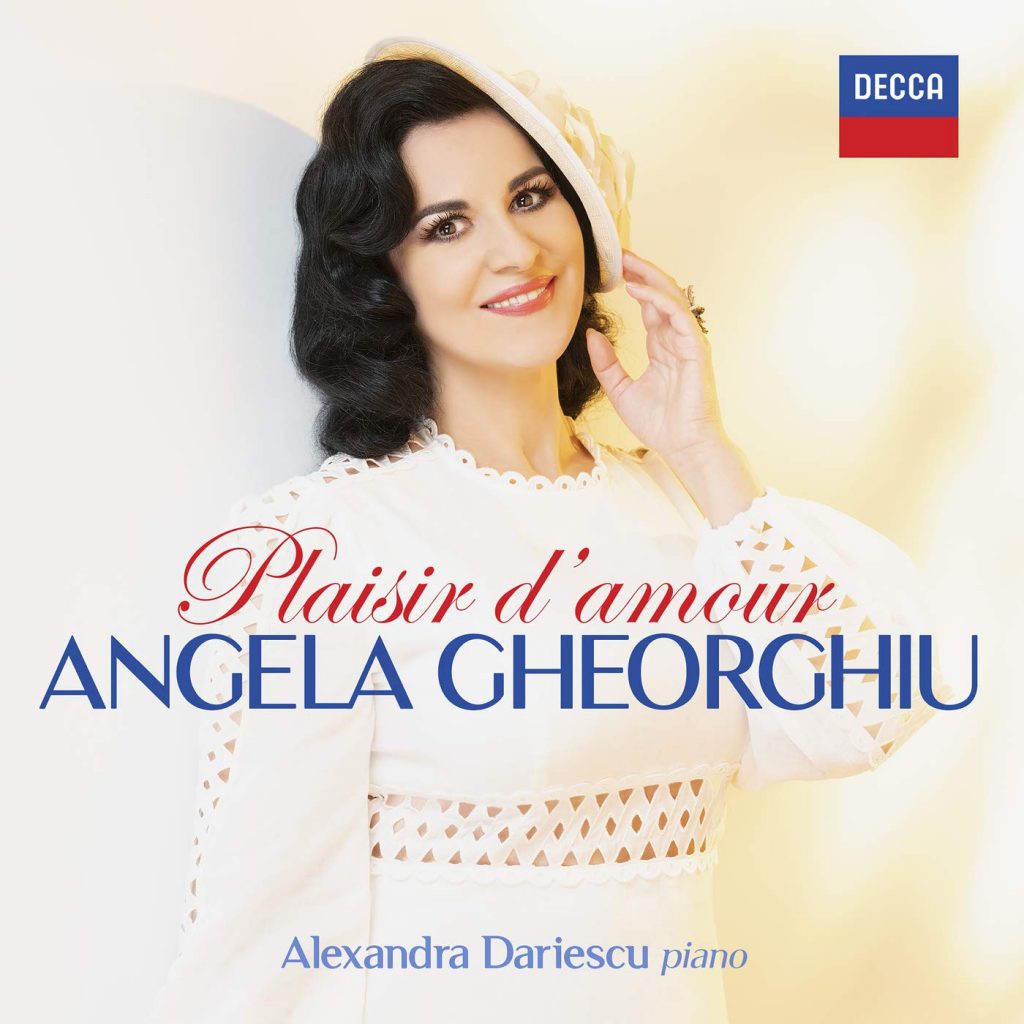PLAISIR D’AMOUR – ANGELA GHEORGHIU
Don Roberts, February 2020
Plaisir d’amour is the new cd from Soprano Angela Gheorghiu and accompanying pianist Alexandra Dariescu. Gheorghiu has been praised for possessing the greatest personality of the last decades. Angela Gheorghiu’s voice is highly distinctive. The repertoire of this cd, with famous melodies is precious and it excels in French pieces, like “Après un rève” by Fauré. Even with the lack of an orchestra accompanying her instead of the piano, the CD keeps its grandiloquence.
Brought together by a varied melodic repertoire, soprano and pianist explore musical eras and gratefully link the pieces, around the theme of love and its poetic and dreamy illustrations. The controlled and sometimes a bit too musically restricted performance is noticeable during all the recording. Some critics might argue that she could have freed herself a bit more. However, her interpretations are honest and full of credibility.
From the first track, the singer delights us with her vocally spectacular ability, achieved through the years. We can admire the brilliant maturity of her voice, showing off a beautiful center and bass, wrapped up with the velvet touch that has always characterized her voice, with a great sense of phrasing and almost always confortable sharp rises.
The Romanian singer knows how to turn a no so complex program it into small scenes loaded with drama, melancholy or exuberant amusement depending on the case. She’s sheer delicacy in Debussy’s marvelous Beau soir, playful at Paisiello’s Nel cor più non mi sento, and cautious and restrained with Bellini’s Vaga luna. She definitelly shows of her admirable control of the breath control and bel canto singing line.
The song by Martini that gives title to the album is spotless, and we can’t forget mentioning Chopin’s passionate Tristesse, to conclude with the vivid power of El vito, by Obradors, after marveling us with the two Lieder by Richard Strauss.
On the piano, Alexandra Dariescu provides a steady and varied accompaniment in the musical and deep expressive intentions only sometimes with a little lack of rapport with Gheorghiu’s winds. Her virtuosistic qualities shine thanks to the program, especially in the piano arrangement of Tchaikovsky’s Waltz of Flowers. However, the sometimes violent energy of the play might not exactly match with the original character of the piece with its wide phrases. A marked musicality, is evident from the Trois Morceaux, enigmatic the first, more fantastic the second and cheerful and lively the third. The Romanian Dance of Ciortea was overwhelming while there was a subtle lack of precision in the Nocturne Op.6 n.2 by C. Schumann.
All in all, this is a precious recording that should definitely have a space in the collection of any music lover.

